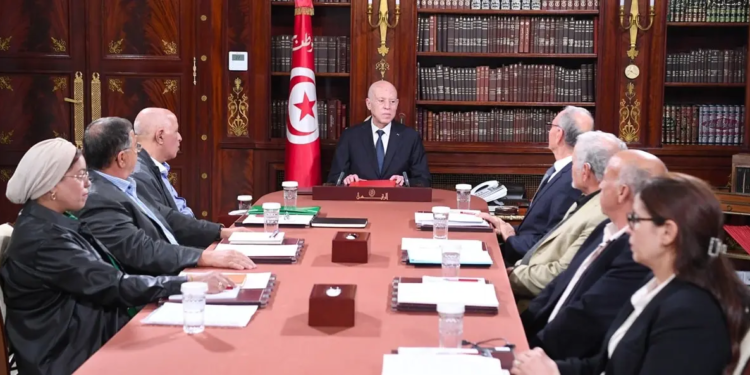Tuesday, November 18 at the Palace of Carthage, President Kaïs Saïed chaired a new meeting of the committee mandated to propose urgent measures to address the environmental crisis hitting Gabès.
Around him, the members of this commission presented a first preliminary report. The Head of State insisted on the need for a rapid action plan, denouncing in passing mismanagement, abandoned equipment and attempts to manipulate the issue.
This meeting reaffirms the executive’s desire to accelerate the end of the crisis, while calling for vigilance in the face of tensions.
Crisis meeting around the first preliminary report
At the Palace of Carthage, Kaïs Saïed brought together the members of the committee he had designated to develop immediate solutions for Gabès: Ali Ben Hammoud, Samia Ben Ali, Hamida Kawas, Rafik Aouadi, Noureddine Rachdi, Mohamed Salah Ennajjar and Mohamed Ben Charrada.
The participants presented the president with a first version of their report, a document that Saïed called for to be finalized “as soon as possible” with concrete, rapid and applicable measures.
The Head of State insisted that the final report propose not only short-term solutions but also a sustainable environmental vision, capable of involving local youth. He recalled that many countries still draw inspiration from environmental studies carried out by Tunisian experts.
The issue of abandoned equipment: a point of presidential anger
Kaïs Saïed returned in detail to the scandal of equipment acquired in 2018 for the Tunisian Chemical Group (GCT), abandoned then becoming unusable.
According to him, this episode symbolizes faulty management of public funds, aggravated by deliberate negligence. He denounced the use of rumors and untruths intended, according to him, to divert attention from plans to sell public establishments.
For the president, this accumulation of errors “disregarded the suffering of the inhabitants of Gabès”, already faced with a stifling environmental situation.
Tribute to the inhabitants of Gabès
While exposing these dysfunctions, the president praised the local population for their restraint and their sense of the general interest. He underlined their commitment to preserving civil peace, in particular by collaborating with security forces in the face of attempts to inflame the situation.
Saïed assured that he is personally following the development of the case and that residents have the right “to know the whole truth, to demand accountability in accordance with the law and to live freely, with dignity”.
Presidential warning
Beyond the environmental issue, the president delivered a very direct political message. He spoke of an “all-out war of national liberation”, evoking attempts at destabilization, media manipulation and allegiance abroad.
According to him, “the Tunisian state is not governed by publications on social networks”, nor by those who defame or seek to “spread lies”.
Read also








